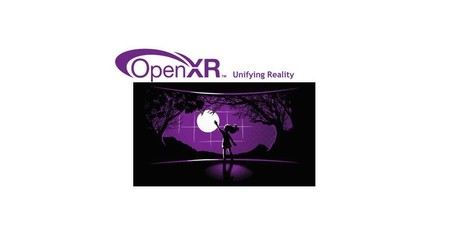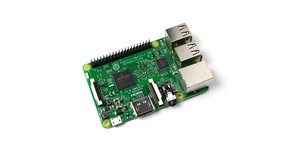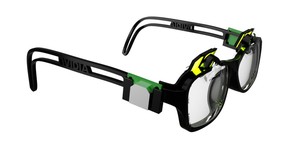Khronos Group launches OpenXR 0.90
March 18, 2019 | 13:00
Companies: #facebook #htc #khronos-group #microosft #oculus-vr

The Khronos Group, best known for its work on the OpenGL and Vulkan graphics application programming interface (API) standards, has announced the public release of OpenXR 0.90, its provisional specification for high-performance augmented and virtual reality (AR and VR, combined as XR).
Formerly known as the Khronos VR initiative, OpenXR was officially unveiled back in March 2017 with founding members including AMD, Intel, Arm, and Nvidia alongside game engine makers Epic Games and Unity. The freshly-founded working group aimed at solving the fragmentation problem in the virtual and augmented reality field, not simply by adding yet another competing standard to the pile but by promising to provide an open application interface which would allow any game engine to talk to any VR or AR platform and vice-versa.
Today's release of the OpenXR 0.90 provisional specification, announced during the Game Developer Conference (GDC) in San Francisco this afternoon, brings the Khronos Group a step closer to that goal. 'OpenXR seeks to simplify AR/VR software development, enabling applications to reach a wider array of hardware platforms without having to port or re-write their code and subsequently allowing platform vendors supporting OpenXR access to more applications,' explains Brent Insko, lead VR architect at Intel and OpenXR working group chair. 'The OpenXR provisional specification—together with the runtimes publicly available at launch and coming in the next few weeks—will enable hands-on, cross-platform testing by application and engine developers. The working group welcomes developer feedback to ensure an OpenXR 1.0 specification that truly meets the needs of the XR industry.'
'Facebook and Oculus continue to believe in the value the OpenXR standard delivers to users and developers,' says Nate Mitchell, co-founder of Oculus VR and head of VR at Facebook, of the launch. 'We plan to provide runtime support for apps built on OpenXR 1.0 on the Rift and Quest platforms later this year.'
'HTC Vive is committed to creating a viable ecosystem for the XR industry which is why we are proud to support OpenXR,' adds Vinay Narayan, vice president for platform strategy at HTC, Facebook's biggest rival in the PC and mobile VR field. 'Bringing the community together to help define standards and best practices, allows all of us to move forward, together.'
'Microsoft believes that for mixed reality to thrive, it must be open for everyone: open stores, open browsers and open developer platforms. We were proud to demo our OpenXR runtime at SIGGRAPH [graphics conference] last year, and we're dedicated to supporting the launch of OpenXR this year on Windows Mixed Reality and HoloLens 2,' continues Alex Kipman, technical fellow at Microsoft, to round out the standard's industry support. 'To help developers provide feedback on the provisional OpenXR spec, we're releasing today a developer preview of our OpenXR runtime with support for Windows Mixed Reality headsets.'
Other working group members, including Arm, Collabora, Epic Games, Nvidia, Tobii, Unity, and Varjo, have also spoken out in support of the launch. More details, meanwhile, are available from the OpenXR feedback forum.

MSI MPG Velox 100R Chassis Review
October 14 2021 | 15:04








Want to comment? Please log in.